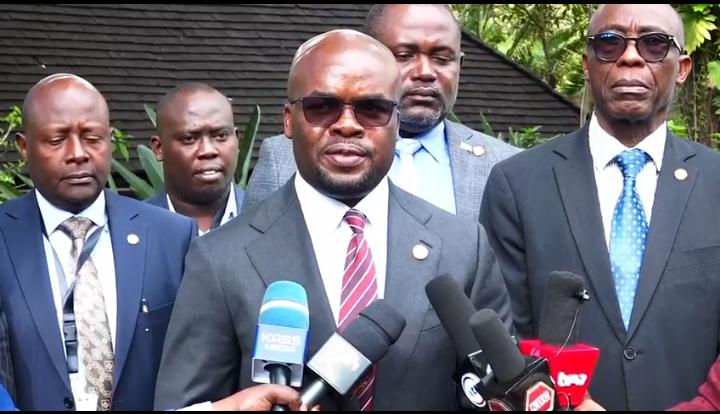
Interior and National Administration Cabinet Secretary Kipchumba Murkomen has officially opened the 16th Technical Advisory Committee (TAC) Meeting of the Regional Centre on Small Arms and Light Weapons (RECSA).
The meet underlines the need for sustained regional collaboration to tackle the persistent threat of illicit arms in the region.
The meeting, which began on June 11, 2025, in Nairobi, has brought together experts and officials from RECSA’s 15 member states to assess current threats, challenges, and opportunities in the control of small arms and light weapons (SALW).
As the Chair of the Council of Ministers for RECSA, Murkomen emphasized the importance of working together to confront the growing and increasingly complex issues linked to the proliferation of illicit weapons.
He noted that effective regional cooperation is vital for the success of arms control efforts and broader regional stability.
Speaking to the media, Interior Principal Secretary Raymond Omollo highlighted that RECSA is marking 20 years since its establishment in 2005 under the Nairobi Protocol.
He also noted that Kenya, as the current chair, is leading the way in tackling the evolving threats posed by illicit arms.
“For the past two days, our team of experts has been discussing pressing issues facing the region. It’s also worth noting that RECSA is celebrating its 20th anniversary this year,” Omollo said.
He explained that while much has been achieved over the past two decades, emerging security threats and changing circumstances mean that RECSA must adapt and find new ways to stay ahead.
“Twenty years is a long time, and so much has changed. We must be honest about the challenges we continue to face due to small arms proliferation and the rise of new threats,” he said.
One major area of concern, according to Omollo, is the sustainability of funding for RECSA operations.
As competition for resources intensifies, finding long-term solutions to funding gaps is becoming increasingly critical.
“We are calling on member states to explore sustainable ways of funding RECSA’s work,” he urged.
RECSA was also joined by a range of partners who have supported its mission over the years, underscoring the importance of shared responsibility in combating the spread of small arms.
As the meeting continues, participants are expected to provide technical insights and policy recommendations that will shape decisions at the upcoming Council of Ministers meeting on Friday.













